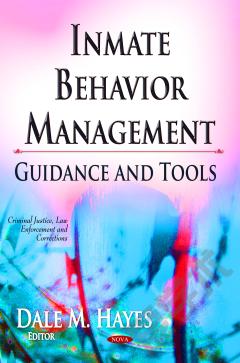Inmate Behavior Management: Guidance and Tools
Experience has shown that if a jail does not meet the basic human needs of inmates, the inmates will find a way to satisfy their needs in ways that may be unfavorable to the orderly operation of the jail. Understanding what motivates human behavior provides jail administrators with a very useful tool for managing inmates since it helps explain both good inmate behavior and bad. This book not only provides guidance to jail practitioners as they implement this element, but it also provides self-assessment checklists to determine how well the jail is doing in the delivery of basic needs and suggestions for area of improvement. Violence, vandalism, and unsanitary conditions prevail in many jails nationwide, frustrating jail practitioners who must ensure the safety and security of inmates, staff, and the public. These conditions often result from insufficient attention to inmate behavior management. Thankfully, over the past 25 years, important lessons about managing and controlling inmate behavior have emerged. One lesson is that a jail cannot control inmate behavior by focusing primarily on physical containment. A jail must actively manage inmate behavior to achieve a safe, clean, and secure environment, and this book provides tools for managing inmate behavior in this manner.
{{comment.content}}








 京公网安备 11010802027623号
京公网安备 11010802027623号